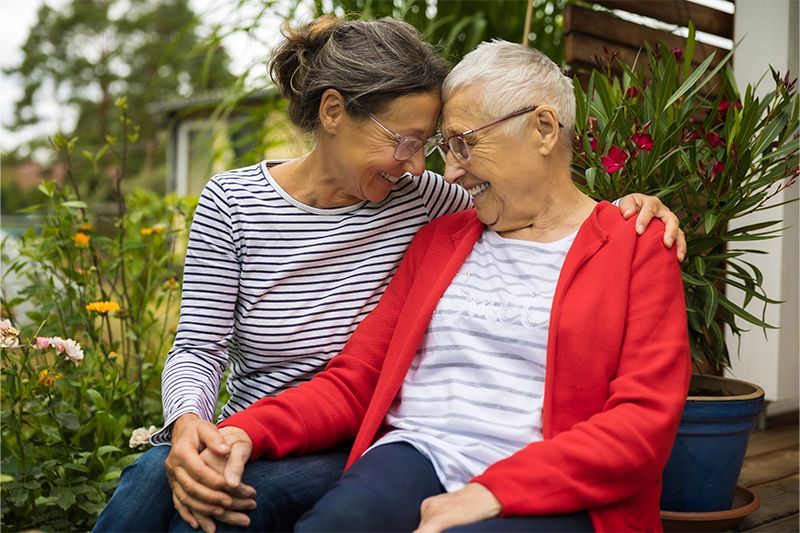Creative Alzheimer’s Communication Strategies That Speak to the Heart

You ask a straightforward question: “What would you like for lunch today?” But rather than a response, you’re met with confusion, hesitation, and an extended pause. You’ve likely experienced times such as this while caring for a loved one with Alzheimer’s, where words seem just out of reach and conversations feel more like challenges than connections. When verbal communication begins to diminish, it is very easy to feel at a loss. But the truth is, connection does not rely solely on words. There are a variety of creative Alzheimer’s communication strategies that don’t require a single word at all.
I have seen firsthand how a simple gesture, like holding someone’s hand, can communicate reassurance and love far more powerfully than words ever could. These occasions remind us that communication does not end when words fail; it merely shifts to other forms. Nonverbal communication becomes the bridge which allows us to keep up meaningful connections and ensure an individual with Alzheimer’s feels supported and understood.
Why Nonverbal Communication Is Significant
Alzheimer’s can make it challenging for individuals to select the words they want or even comprehend what is being said to them. Yet, their emotional awareness often remains intact. This means they are able to sense frustration, joy, love, and calmness, even when they can’t articulate these emotions. Nonverbal communication bridges the gap, making it possible to express reassurance, understanding, and empathy without words.
Simple Ways to Communicate Without Words
Listed below are five nonverbal methodsto connect with someone with dementia:
- Facial expressions: A smile or a calm, reassuring expression speaks volumes. Your face can show emotions that words may fail to convey, like understanding, kindness, and patience.
- Touch: A warm hand on their shoulder, holding their hand, or a gentle pat on the back can communicate comfort and love. Touch has a way of bypassing confusion, reaching straight to the heart.
- Tone: Whether or not your words are understood, your tone is. Speak softly and warmly, as it can help reduce stress and foster a sense of serenity.
- Body gestures: Open, inviting posture shows you are approachable. Avoid abrupt movements or crossed arms, which may be read as frustration or impatience.
- Eye contact: Meeting a person's gaze can be incredibly grounding. For an individual with Alzheimer’s, eye contact conveys that you’re engaged and present. It can help them feel seen and valued, even when their memory struggles to recognize you.
Activities That Encourage Nonverbal Interaction
Participating in simple, shared activities can enhance nonverbal communication. Try doing a craft together, brushing the person's hair, or listening to music—moments that don’t require words. It’s about being present and creating shared experiences.
For example, a number of people with Alzheimer’s respond well to music. Singing or playing familiar tunes can spark joy and present a way to connect that feels natural and uplifting.
Watch for Their Nonverbal Cues as Well
Communication is a two-way street. Your family member is likely sharing their feelings nonverbally, too. Learn how to recognize their cues:
- Facial expressions: A furrowed brow may indicate discomfort or confusion, while a grin can signal happiness.
- Gestures: Pointing or reaching for something could be their means of indicating a need.
- Sounds: Humming, sighing, as well as other vocalizations can convey feelings when words do not come.
The next time you’re striving for the right words, know that silence is not the absence of communication. It’s an opportunity to speak with your eyes, your hands, as well as your heart. After all, some of the most meaningful connections extend far beyond the reach of our words.
Want Additional Help and Resources?
At Traditions Home Health Services, our caregivers are experts in creative Alzheimer’s communication strategies and other techniques to help those with dementia live fuller, richer lives. Give us a callat 617-376-3711 to learn more about our skilled Alzheimer’s care in Boston, Metro West, South Coast, and the surrounding areas in Eastern Massachusetts, with live-in care servicesavailable throughout New Hampshire, Vermont, Maine, and Massachusetts.



